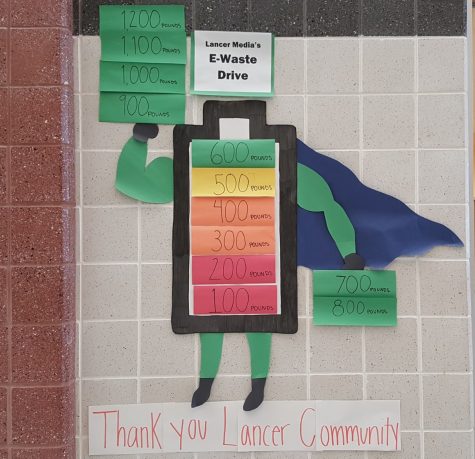FCPS testing refusal policy doesn’t change underlying problem with testing
graphic courtesy of Tribune News Service (formerly MCT campus)
“Congratulations on completing last year’s PARCC testing. Now we can really buckle down and start preparing for next year’s PARCC test!”
September 28, 2016
Chances are that you have never heard of the new Frederick County Public Schools Board of Education policy on testing that was passed on August 24th, 2016. Unfortunately, Policy 511 will not bring about any major change to the status quo.
The policy states that FCPS recognizes that a student, at the time the test begins, can refuse state testing, and they should not be treated differently by teachers for that decision.
To make this decision, the Board defined the purpose of state testing in Policy 511. “System leaders should be able to use assessment results to identify and close gaps in achievement, ensure equity in instruction, and to inform strategies to increase performance across all student groups.”
Even though the Board recognizes the importance of state testing, they also know that not all children will want to participate in state testing. This is a hot topic across the country, as the burden of testing impacts all children’s day to day activities.
The Maryland State Department of Education had denied opt-out requests because they believe that when parents make the decision to send their children to public school, parents lose control over what parts of the public education program their child will participate in. FCPS cannot go against decisions made by the MD State Department of Education, so FCPS cannot allow opt-outs either.
However, neither FCPS or the MSDE can stop students from refusing to take the test. FCPS saw an opening in the MDSE’s ambiguous regulations and decided to make a new policy regarding refusals.
FCPS created a policy that protects every student’s rights during test time. This sounds great on paper, but in practice, it doesn’t have teeth.
Any good teacher would have the decency to treat a student who is refusing to take the test with the same respect as a student who is taking the test. Mrs. Deborah Gilmartin, FCPS Testing Coordinator, confirmed this statement.
“The policy only put in writing the practice we were already following,” said Gilmartin.
According to Gilmartin, 22 students refused to test last year. This number will not drastically spike or decrease due to the new policy because in the state of Maryland students have to participate in standardized testing to pass high school unless they complete an FCPS authorized Bridge Plan.
“I think the new policy will have little to no impact because the same students who refused testing last year will refuse it again, with or without the law,” Maggie Clugston, Class of 2019.
FCPS did not need to officially spell out common sense.
FCPS should be attempting to pass and/or support meaningful legislation about other testing issues that have no existing Maryland BOE restrictions.
For example, Mrs. Cindy Rose, who is running for the Board of Education, is currently working on passing the bill HB 1204, otherwise known as Ben’s Rule, in the Maryland General Assembly.
“This legislation allows parents of severely disabled to refuse PARCC assessment,” Rose said.
This issue is on The Board’s radar since it was already mentioned as a point to address in the data agenda and then later in Opinion 16-13. The Board said, ” How should the local board treat students with disabilities for purposes of state assessments? If the parent of a severely disabled student asserts a refusal on the student’s behalf, must a school honor that refusal?”
The Board has not formulated an official policy on the topic.
Mike Bunitsky, who is also running for the Board of Education, offered a reasonable explanation on his blog post. “I fully agree that the state should have passed Ben’s Law and I believe parents should have options to speak for their children. Right now the State Board does not have any guidelines to allow that. This is a fight for the General Assembly,” said Bunitsky.
Perhaps Bunitsky is right and this is out of the Board’s reach. However, support from the Board could be a huge help in passing this law. In any case, it would be more meaningful than the futile Policy 511.












